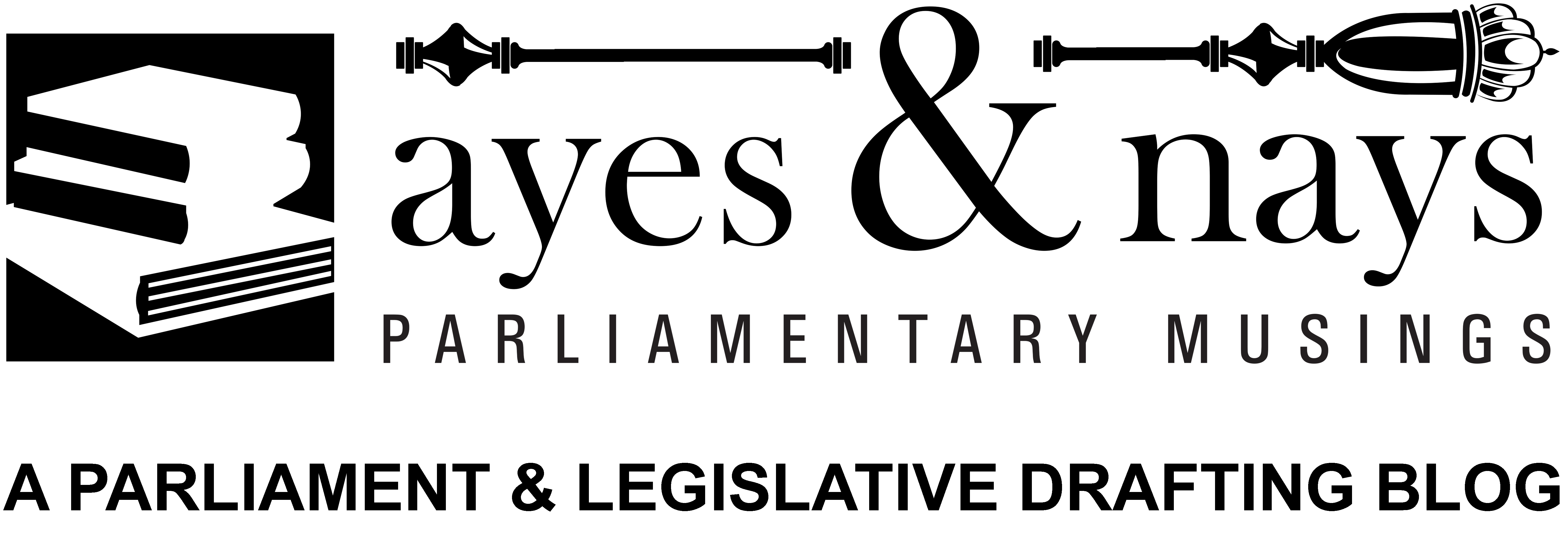
It has been reported that the White House and Senate leaders struck a major deal early Wednesday morning over a $2-trillion relief package to help the American people stay afloat amidst the coronavirus pandemic. The Senate is scheduled to debate the Bill today. The Bill is accessible here.
The US Congress has enacted the following legislation in the recent past:
- The Coronavirus Preparedness and Response Supplemental Appropriations Act, 2020 (H.R. 6074)
- Families First Coronavirus Response Act (H.R.6201)
The following legislation are under consideration:
-
COVID-19 Health Care Worker Protection Act of 2020 (H.R. 6139)
-
MEALS Act (H.R.6187 )
-
Emergency Paid Leave Act of 2020 (H.R. 6198)
-
Emergency Unemployment Insurance Stabilization and Access Act of 2020 (H.R. 6199)
-
Pandemic EBT Act of 2020 ( H.R. 6200)
- COVID-19 Child Nutrition Response Act (H.R. 6203)
-
No Cost for COVID-19 Testing Act (H.R. 6213)
-
To amend title XVIII of the Social Security Act to provide for coverage of testing for COVID-19 at no cost sharing under the Medicare Advantage program (H.R. 6214)
-
S.3415 – Paid Sick Days for Public Health Emergencies and Personal and Family Care Act
Below is a summary.
I. Enacted Legislation
The Coronavirus Preparedness and Response Supplemental Appropriations Act, 2020 (H.R. 6074)
This Act provides $8.3 billion in emergency funding for federal agencies to respond to the coronavirus outbreak.
It was introduced in the 116th United States Congress on March 4, 2020 by Representative Nita Lowey.
The legislation passed the House on March 4, 2020(415-2) and the Senate on March 5, 2020 (96-1) and was signed into law by President Trump on March 6, 2020.
The summary on the Bill (as it then was) is available here. The text of the enrolled Bill is also available here.
Families First Coronavirus Response Act (H.R.6201)
This Act responds to the coronavirus outbreak by providing paid sick leave and free coronavirus testing, expanding food assistance and unemployment benefits, and requiring employers to provide additional protections for health care workers.
Specifically, the Act provides FY 2020 supplemental appropriations to the Department of Agriculture (USDA) for nutrition and food assistance programs, including
- the Special Supplemental Nutrition Program for Women, Infants, and Children (WIC);
- the Emergency Food Assistance Program (TEFAP); and
- nutrition assistance grants for U.S. territories.
The bill also provides FY 2020 appropriations to the Department of Health and Human Services for nutrition programs that assist the elderly.
The Act was introduced in the 116th United States Congress on March 11, 2020 by Representative Nita Lowey.
The legislation passed the House on March 14, 2020(363-40) and the Senate on March 18, 2020 (90-8) and was signed into law by President Trump on March 18, 2020.
The summary on the Bill (as it then was) is available here. The text of the enrolled Bill is also available here.
II. Pending Legislation
COVID-19 Health Care Worker Protection Act of 2020 (H.R.6139)
The Bill, sponsored by Rep. Robert C. Scott “Bobby”, was introduced in the House on March 9, 2020. It has been referred to the Committee on Education and Labour, and in addition to the Committees on Energy and Commerce, and Ways and Means.
This bill requires the Department of Labor to promulgate both an emergency temporary occupational safety or health standard and a permanent standard to protect certain employees from occupational exposure to SARS-CoV-2 (known as coronavirus or COVID-19). These standards apply to health care sector employees and other employees identified as having an elevated risk for exposure.
The Bill’s text is available here.
MEALS Act (H.R.6187 )
This Bill – “Maintaining Essential Access to Lunch for Students Act” or the “MEALS Act”- was introduced to the House on March 3 and is sponsored by Rep. Omar Ilhan. It has been referred to the House Committee on Education and Labour.
This bill modifies food and nutrition programs of the Department of Agriculture to allow certain waivers to requirements for the school meal programs, including waivers that increase federal costs during a school closure related to COVID-19 (i.e., coronavirus disease 2019).
Such waivers must be requested by a state or service provider and be for purposes of providing meals and snacks during such a closure.
The Bill’s text is available here.
Emergency Paid Leave Act of 2020 (H.R. 6198)
This bill, sponsored by Rep. Murphy Stephanie, was introduced to the House on March 11 and referred to the House Committee on Ways and Means.
The Bill requires the Social Security Administration (SSA) to provide emergency paid leave during each 30-day period that specified employees take leave due to COVID-19 (i.e., coronavirus disease 2019). Specifically, an employee may apply to SSA for such leave payments if the employee
- has been diagnosed with COVID-19,
- is under self-quarantine at the direction of a governmental entity or health care provider,
- is caring for another individual who is under such self-quarantine, or
- is caring for that employee’s child because the child’s school or child-care provider is closed due to COVID-19.
For each 30-day period, the SSA must pay two-thirds of an eligible employee’s average monthly pay to a maximum of $4,000. Emergency paid leave benefits are available for up to 90 days from the period during which an employee first files an application for such leave. Available benefits for emergency paid leave are reduced proportionally by any amount of paid leave an employee receives from a state or employer during each 30-day period.
Further, emergency paid leave benefits are available retroactively from January 19, 2020, until one year from the date of enactment of this bill. The bill also establishes penalties for fraudulent applications and provides for the review of the SSA’s application determinations.
The Bill’s text is available here.
Emergency Unemployment Insurance Stabilization and Access Act of 2020 (H.R.6199)
This Bill, sponsored by Rep. Horsford Steven, was introduced to the House on March 11. It has been referred to the House Committee on Ways and Means.
The Bill seeks to provide for emergency transfers for unemployment compensation administration.
The Bill’s text is available here.
Pandemic EBT Act of 2020 ( H.R. 6200)
This Bill was introduced to the House on March 11. It is sponsored by Rep. Marcia L. Fudge and it has been committed to the Committee on Agriculture, and in addition to the Committee on Education and Labor.
The Bill seeks to authorize the Secretary of Agriculture to provide certain food assistance for eligible children during periods when their schools are closed due to a public health emergency.
The Bill provides that during fiscal year 2020, in any case in which a school is closed for at least 5 consecutive days during a public health emergency designation during which the school would otherwise be in session, each household containing at least 1 member who is an eligible child attending the school shall be eligible to receive assistance pursuant to a State agency plan.
The Bill’s text is available here.
COVID-19 Child Nutrition Response Act (H.R.6203)
This Bill is sponsored by Rep. Suzanne Bonamici. It was introduced to the House on March 11 and has been referred to the House Committee on Education and Labor.
The Bill seeks to provide for certain waivers of program requirements under the Richard B. Russell National School Lunch Act to appropriately address safety measures with respect to COVID–19.
The Bill’s text is available here.
No Cost for COVID-19 Testing Act (H.R. 6213)
This Bill, sponsored by Rep. Frederica S. Wilson, was introduced to the House on March 11. It has been referred to he Committee on Energy and Commerce, and in addition to the Committees on Ways and Means, and Education and Labor.
The Bill seeks to provide for coverage (without cost sharing or utilization management requirements) under group health plans and individual and group health insurance coverage of testing for COVID–19.
The Bill’s text is available here.
To amend title XVIII of the Social Security Act to provide for coverage of testing for COVID-19 at no cost sharing under the Medicare Advantage program (H.R.6214)
This Bill, sponsored by Rep. Ron Kind, was introduced to the House on March 12. It was referred to the Committee on Ways and Means, and in addition to the Committee on Energy and Commerce.
This bill requires Medicare Advantage (MA) plans to cover COVID-19 (i.e., coronavirus disease 2019) testing and related visits without cost-sharing during the public health emergency declared on January 31, 2020. MA plans are also prohibited from instituting prior authorization or other utilization management requirements with respect to coverage of such services.
The Bill’s text is available here.
S.3415 – Paid Sick Days for Public Health Emergencies and Personal and Family Care Act
This Bill is sponsored by Sen. Patty Murray. It was introduced to the Senate on March 5, read twice and referred to the Committee on Health, Education, Labour, and Pensions.
This bill expands the availability of paid sick time by requiring employers with at least one employee to provide a minimum amount of accrued paid sick time per work week and additional paid sick time in the event of a public-health emergency such as the coronavirus outbreak.
Specifically, the bill requires employers to grant at least 1 hour of accrued paid sick time to each employee for every 30 hours worked, up to a minimum of 56 hours, or 7 days, of paid sick time per year. Accrued paid sick time may be used for, among other reasons, an absence from work that is taken (1) due to a medical condition or illness or for the diagnosis, care, or prevention thereof; (2) to care for a child, spouse, domestic partner, parent, or other close relative with a medical condition or illness, or for the diagnosis or prevention thereof; (3) during a public-health emergency when the employee’s workplace has been closed or the employee has been exposed to a communicable disease and may pose a risk to others; or (4) to care for a child or close relative during such public-health emergency, if such relative has been exposed to a communicable disease or the child’s school has been closed.
Further, employees are immediately entitled to up to 14 days of additional paid sick time if a public-health emergency is declared. This additional paid sick time may be used during the public-health emergency for the same purposes as accrued paid sick time.
The Bill’s text is available here.
Finally, there’s this Bill by the House of Representatives titled Take Responsibility for Families and Workers Bill with a whopping 1,404 pages. You can dedicate a chunk of your #StayHome time to read it. Good luck with that.
However, on second thoughts, we are not having it easy now. Forbes has written something on it. You can skim through it.
–
ayes & nays
